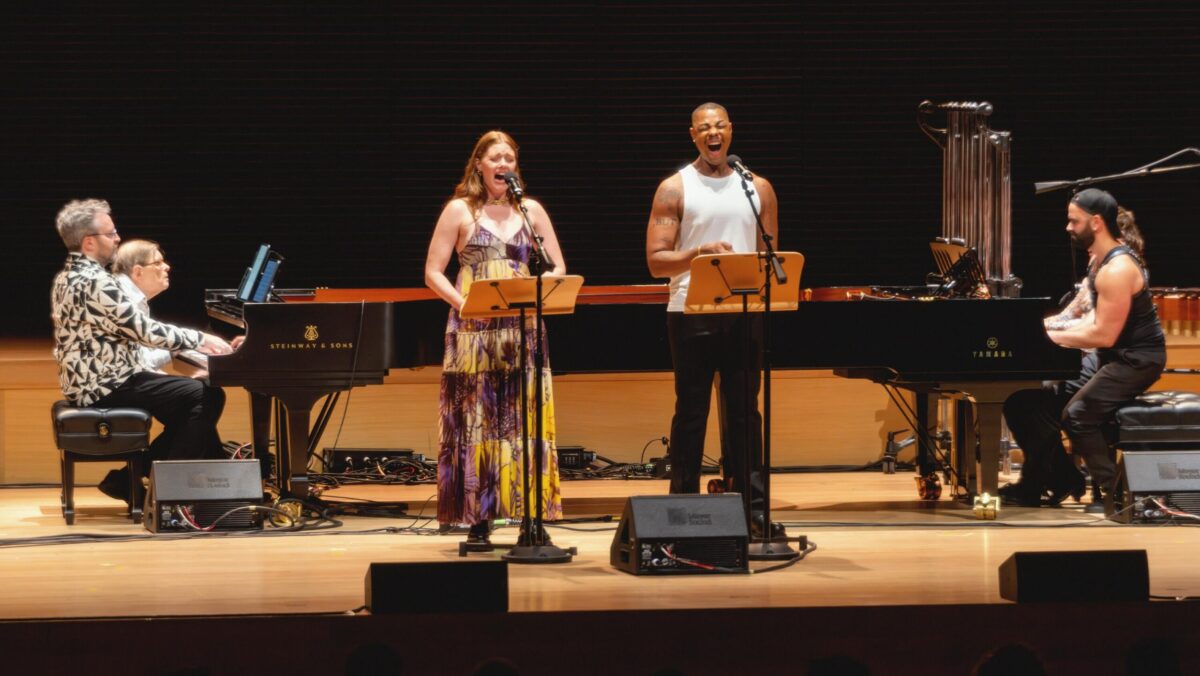
Lawrence Sumulong
I didn’t realize it until much later, but I had first encountered Julius Eastman—composer, performer, and the subject of a retrospective mini-festival I dropped in on at Lincoln Center the Saturday before last—as a singer, long before I discovered his work as a composer. Sitting in undergrad music history, listening to the old recording of Eight Songs for a Mad King by Peter Maxwell Davies, I was agog at what I was hearing: who was this screeching, wailing, moaning vocalist, himself perhaps a bit mad, who was willing and able to put his pipes through that kind of punishment in a classical song cycle? This was not an ordinary opera singer.
But I didn’t hear his name again for years.
I did hear the story about a performer who was chastised none other than John Cage himself after a performance of the latter’s Song Books, for delivering, ostensibly as a performance of Solo No. 8, a comical lecture on sex that involved stripping a pair of male and female “specimens” live on stage. Cage, decidedly more reticent with regard to his homosexuality, was horrified. “The freedom in my music,” Cage reprimanded, “does not mean the freedom to be irresponsible!”
It wasn’t until after I had listened to the first compilation of Julius Eastman’s own compositions—released in 2005—that I found out these were all the same guy. The guy who had taken extended vocal techniques to their furthest extremes in Eight Songs for a Mad King, the guy who had found and surpassed the limits of John Cage’s tolerance for experimentation, was this same skinny Black gay guy who had had also composed an almost totally unknown body of brilliant works just being rediscovered decades later. And these, too, pushed the limits, combining rock grooves, indeterminacy, improvisation, and miscellaneous chaos under titles like Gay Guerrilla and Evil N***** (Easman’s actual title, itself pushing the limits of what is printable in a concert program, does not have asterisks in it).
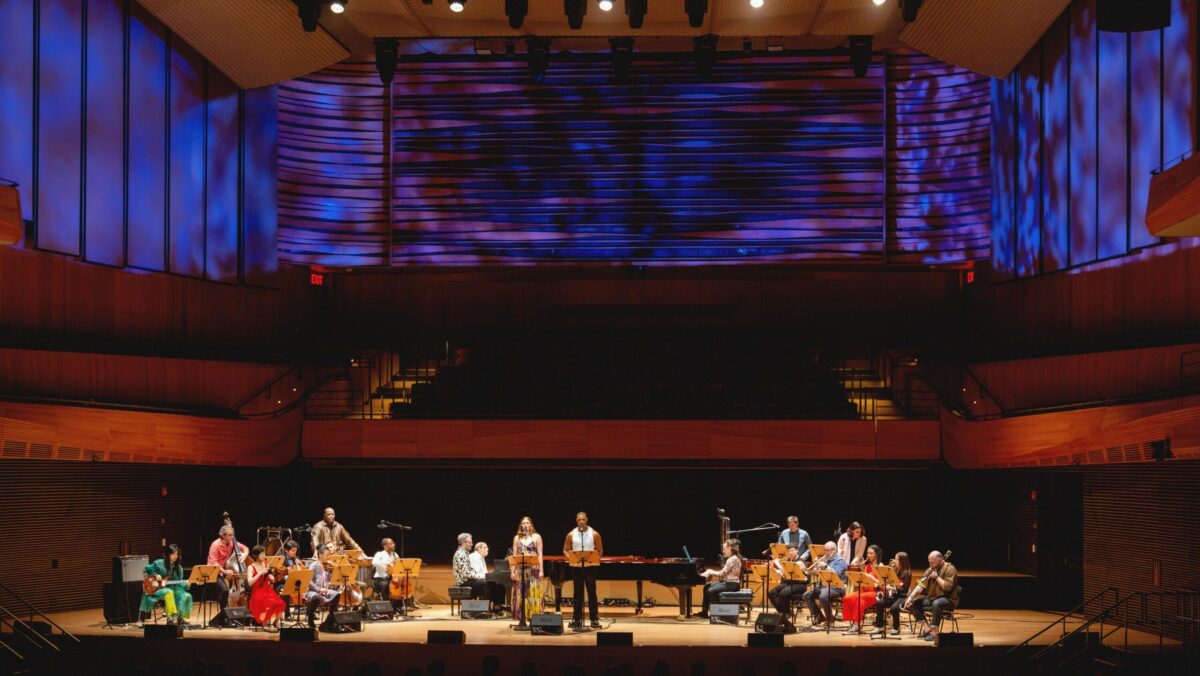
Lawrence Sumulong
And he was dead. Julius Eastman couldn’t hold down an academic job, he couldn’t get a music career on track, he couldn’t stay sober, he couldn’t keep up with his rent, and he ended up living on the streets until his heart gave out in 1990. It’s hard not to feel that if he’d enjoyed the privilege of, say, an Elliott Carter, he might still be composing.
Fortunately, diligent scholars have been reconstructing his works, digging up often cryptic scores and obscure archival recordings. His estate landed a publishing contract, and players have begun realizing, performing and recording his works anew.
That’s what was going on this past weekend. Seth Parker Woods, a spectacular cellist specializing in contemporary repertoire, curated a short festival with the American Modern Opera Company, Davóne Tines, and some of my favorite new-music players, so I had to check it out.
In case those titles didn’t clue you in, Eastman’s music is characterized by its directness. It can seem plain or even rough. Composers are always coming up with subtle and ingenious ways of pulling or holding an ensemble together in a piece of music with indeterminate elements; in Evil N*****, to signal that it’s time for the ensemble to bring the unison refrain, Eastman just has a member of the ensemble count off One, two, three, four!, like they’re the Ramones or something. He’s not interested in riddles. He cuts the Gordian Knot.
The piece that opened this concert, Trumpet, gave a glimpse of Eastman at his roughest. Lines of trumpeters played a fanfare that just kept going, passing around material ranging from triads to whinnies to screams in a strange, raw, rambling performance. By contrast, the following piece was performed with startling poise and grace—guitarist JIJI overdubbed herself in a reverb- and distortion-soaked performance of Touch Me When for four-hand piano, transforming it into a dramatic doom-metal homage.
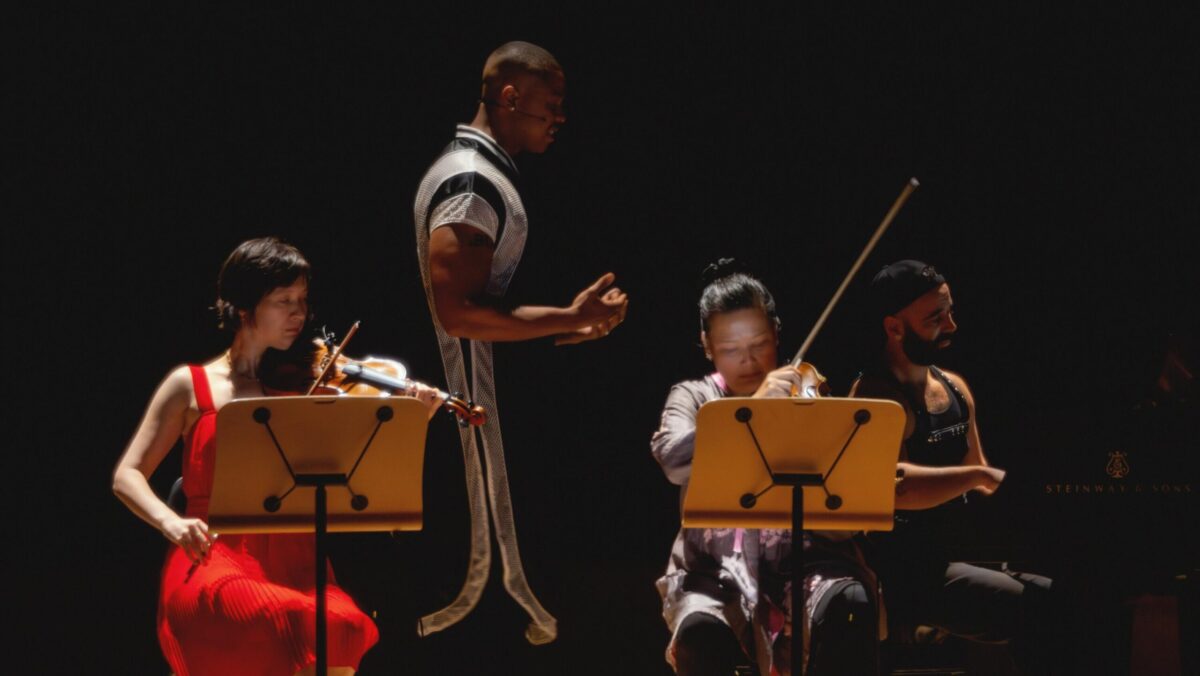
Lawrence Sumulong
I wasn’t sure where Davóne Tines was going to fit into this, aesthetically. I’ve seen him perform a few contemporary works, and he has always proved a performer of immense vocal power and polish, and a commanding stage presence. Could he, convincingly, do “rough”? Could he do “raw”?
Turns out, yeah, Davóne Tines can maybe kinda do anything. After the start of Hail Mary, with the ensemble dramatically shrouded in shadows, he emerged from the darkness near the stage entrance wearing a futuristic couture tabard. Singing the familiar text, stalked the stage as if playing a part in some ritualistic pageant—which, I guess, he was—and sank his teeth into vocal registers I couldn’t quite clock. Occasionally he sounded not like any countertenor I’ve ever heard but something like a cross between “falsetto” and “hair metal scream,” in addition to the ponderous bass-baritone he’s usually steering. He didn’t quite reach Eastman extremes in terms of far-out technique, but he certainly demonstrated once again that he is beyond committed as a performer. It was a wrenching performance, a cry from the depths.
It also gave us more of that thing I recognized in JIJI’s performance—rough-edged sounds, but executed with style and authority. We’ve seen this happen with other composers from the late 20th century, with works like Terry Riley’s shaggy In C finding champions who can look at an anything-goes score with free instrumentation and an open form and then map out an elegantly shaped arrangement that still holds true to the spirit of the piece. In the case of Julius Eastman, we’ve seen it happening with L.A. new music ensemble Wild Up, whose reputation is built largely on the excellence of their Eastman recordings. (Many of the players on those Wild Up CDs were on the stage on Saturday, including music director Christopher Rountree—enough of them that I was surprised the ensemble wasn’t credited by name in the program.)
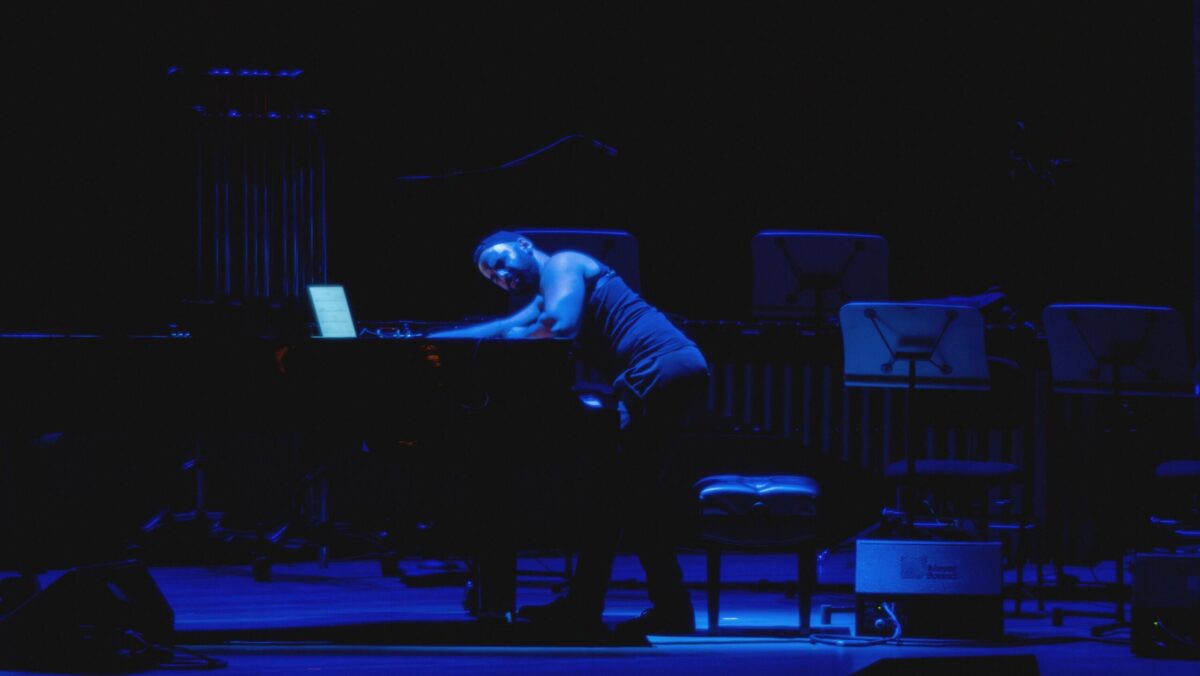
Lawrence Sumulong
It makes sense that Eastman’s music should have found performers who can work within this idiom as a native language. Beyond the classical tradition, he was living, composing and playing at the intersection of musics — like minimalism, hard rock, and funk — that would have been relatively novel to conservatory-trained musicians at the time but now form the backbone of American popular music. The kids who grew up on those sounds are not going to have any problem decoding the grooves and riffs in a Julius Eastman piece, and in many cases, they’re going to be able to make it sound better than any of his contemporaries did.
richard valitutto’s performance of Piano 2, deeply sensitive and intriguing, made a powerful case for the piece, but the two performances that following the intermission were absolutely magical. Seth Parker Woods deserves special mention for his arrangement of That Boy for vocalist Jodie Landau and ensemble. Jodie’s singing—a light, clear, non-vibrato head voice—is more indie rock than opera, while Sidney Hopson brought a sweetness and delicacy to his droning vibraphone pulses that matched Isabel Lepanto Gleicher’s flute playing. It was Woods’ everything-but-the-kitchen-sink part for pianist Adam Tendler that sold it for me, though. (Full disclosure: I’ve done some work with/for Jodie and Adam in the past, and I think they’re both just great.) Adam was preparing, plucking, stopping, and bowing the strings of the piano, creating an uncannily lovely web of sounds that brought the piece together.
The program concluded with Gay Guerrilla in an ensemble arrangement that opens with the sounds of the piano and gradually expands to nearly orchestra scale. The wonderful Julia Bullock, unfortunately, couldn’t sing on Saturday due to laryngitis—she had also been scheduled to give a performance of Olivier Messiaen’s Harawi two days earlier that had to be replaced with a piano recital at the last minute—but Tines and Catherine Brookman were front and center.
There aren’t any vocals in the score of Gay Guerrilla, but they’re a reasonable interpolation. Premiered—and usually performed—on multiple pianos, the piece works with any instruments, and at key moments, it sneaks in quotations from the first two lines of Martin Luther’s Ein feste Burg ist unser Gott (which you of course know as the basis of a Bach cantata, and which the layperson will recognize as the Protestant hymn “A Mighty Fortress Is Our God”). Here, Tines and Brookman went ahead and sang the English text, making the subversive subtext a little more overt. I’m sorry I don’t have anything clever to say about Brookman’s singing—both she and Tines, despite their placement onstage, were essentially backup singers here, contributing to the texture as two instruments among many.
I’ve heard the piece performed live before, but this was something else. Terrifying, moving, sublime, the arrangement sent waves of sound crashing over us, and over and over again they sent chills down my body.
It was a performance so good it hurt. Julius Eastman was ahead of his time in the worst possible way: a fearlessly sexual gay man and an outspokenly political Black man at a time when the world of classical music was hopelessly prudish and white-dominated, he has found his audience and his interpreters decades too late to save him. A product of a musical moment when disco, punk, jazz, and minimalism were all rubbing elbows in downtown Manhattan, he died before he saw his kind of music-making take on institutional cachet. I’m grateful that a vital composer has gone on to enjoy a musical afterlife this rich—a whole mini-festival at Lincoln Center!—but I hope that the classical music world does a better job of supporting the next Julius Eastman while he’s still alive.

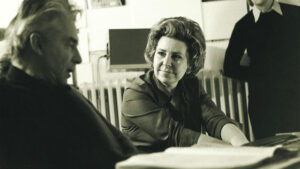


Comments